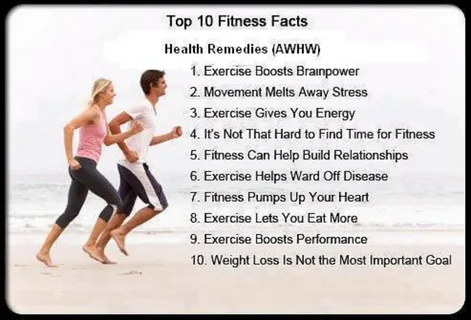Introduction
In the tapestry of human well-being, the threads of health and fitness are intricately woven, creating a symbiotic relationship that goes beyond mere physical aesthetics. The connection between health and fitness is profound and multi-dimensional, touching upon not only the physical aspects of our bodies but also the intricate facets of mental and holistic wellness.

At its core, the amalgamation of health and fitness forms the cornerstone of a life well-lived. This dynamic duo extends far beyond the confines of gym walls and structured exercise routines; it permeates every facet of our existence, influencing our daily energy levels, mental resilience, and overall quality of life. This introduction embarks on a journey to unravel the intricate reasons behind the closely-knit bond between health and fitness, exploring the myriad ways in which each complements and enhances the other.
From the physiological benefits that a fit body bestows upon its owner to the psychological upliftment derived from regular exercise, we delve into the nuanced interplay of health and fitness. The narrative unfolds to reveal how a commitment to physical well-being extends beyond the pursuit of an ideal physique, becoming a holistic approach to life that touches on aspects of mental health, longevity, and even social connection.
Join us as we navigate through the compelling reasons why health and fitness are not mere acquaintances but inseparable partners in the quest for a vibrant and fulfilling life. This exploration is an invitation to understand the intricate dance between maintaining good health and embracing fitness, showcasing how the synergy between the two lays the foundation for a robust, resilient, and thriving existence.
Table of Contents
The Inextricable Link Between Health and Fitness: A Comprehensive Exploration
In the modern era, where the pace of life is relentless and demands on our physical and mental well-being are ever-present, the intertwining relationship between health and fitness has garnered unprecedented attention. Beyond the realms of fad diets and fleeting exercise trends, the profound connection between maintaining good health and embracing fitness speaks to a timeless pursuit—a journey toward a vibrant and fulfilling life.
1. Physical Health: The Foundation of Wellness
a. Physiological Benefits of Fitness:
- Engaging in regular exercise is synonymous with safeguarding one’s physical health. From cardiovascular benefits to enhanced muscle strength and flexibility, fitness becomes the cornerstone of overall physiological well-being.
b. Weight Management and Fitness:
- A fundamental aspect of health is maintaining a healthy weight. Fitness, through its caloric expenditure and metabolism-boosting effects, plays a pivotal role in weight management and obesity prevention.
2. Mental Health: The Mind-Body Connection
a. Endorphins and Exercise:
- The release of endorphins during physical activity is a well-established link between fitness and mental health. These neurotransmitters act as natural mood enhancers, combating stress and promoting a positive emotional state.
b. Stress Reduction through Fitness:
- Fitness serves as a potent stress reduction tool. Whether through the meditative rhythm of running, the focus of yoga, or the camaraderie of team sports, exercise becomes a therapeutic outlet for managing life’s challenges.
3. Holistic Well-Being: Balancing Body and Mind
a. Achieving Holistic Wellness:
- The holistic approach to well-being encapsulates the harmonious balance between physical health and mental fitness. Achieving this balance involves recognizing the interconnectedness of body and mind and addressing both aspects simultaneously.
4. Energy Levels: Boosting Vitality through Fitness
a. Fitness and Enhanced Energy:
- Improved energy levels are a direct byproduct of regular fitness activities. Whether it’s through cardiovascular exercises, strength training, or flexibility routines, fitness contributes to increased stamina and vitality.
b. Combating Fatigue:
- Fitness acts as a shield against the onslaught of fatigue. By enhancing endurance and supporting efficient energy utilization, individuals who prioritize fitness often experience sustained energy throughout the day.
5. Weight Management: Fitness’s Role in a Healthy Weight
a. Caloric Expenditure:
- Fitness contributes to caloric expenditure, making it an integral component of weight management. Engaging in regular physical activity helps burn calories, facilitating weight loss or maintenance.
b. Combating Obesity-Related Conditions:
- The link between obesity and various health conditions is well-established. Fitness, by addressing weight-related concerns, reduces the risk of conditions such as diabetes, heart disease, and joint problems.

6. Quality of Sleep: The Sleep-Fitness Connection
a. Impact on Sleep Patterns:
- Fitness influences the quality of sleep. Regular exercise has been shown to improve both the duration and depth of sleep, contributing to a well-rested and rejuvenated state.
7. Enhanced Immune Function: Fortifying Health through Fitness
a. Strengthening the Immune System:
- Fitness plays a crucial role in fortifying the immune system. Regular exercise enhances immune function, reducing the likelihood of illness and promoting overall health.
8. Social Well-Being: The Communal Aspect of Fitness
a. Community Engagement:
- Fitness often involves a social dimension, fostering a sense of community and shared purpose. Whether through group fitness classes, team sports, or running clubs, the communal aspect enhances mental and emotional well-being.
b. Shared Wellness Goals:
- The camaraderie built within fitness communities creates a support system where individuals share wellness goals, motivating each other to stay committed to a healthy lifestyle.
9. Long-Term Health Benefits: Aging Gracefully through Fitness
a. Maintaining Vitality:
- Fitness contributes to aging gracefully by maintaining vitality. Physical activity supports bone health, joint flexibility, and cognitive function, allowing individuals to enjoy a higher quality of life as they age.
10. Personal Empowerment: Taking Control of Well-Being
a. Empowerment through Fitness:
- The commitment to health and fitness empowers individuals to take control of their well-being. It involves making proactive choices that contribute to physical and mental health, fostering a sense of control and self-efficacy.
b. The Journey Toward Improved Health:
- Fitness becomes a journey, not just a destination. It is about continuous improvement, setting and achieving personal milestones, and embracing the evolving nature of health and wellness.
Conclusion: The Synergy of Health and Fitness
As we navigate through the myriad ways in which health and fitness are interconnected, the conclusion is evident: the synergy between the two is not a mere happenstance but a deliberate and profound relationship. Health and fitness, as partners in the pursuit of well-being, offer a roadmap to a life filled with vitality, resilience, and a holistic sense of fulfillment.
This comprehensive exploration underscores the timeless wisdom that a healthy body begets a healthy mind, and vice versa. The interplay between physical health and mental fitness, the reciprocal benefits of exercise and sleep, and the communal aspects of fitness all contribute to a narrative that extends beyond sets and reps—it’s about embracing a lifestyle that prioritizes well-being in its entirety.
In the grand tapestry of life, health and fitness stand as pillars, supporting each other in a dance that orchestrates the symphony of a truly vibrant existence. The journey toward optimal well-being is not a solitary road but a shared odyssey, where health and fitness walk hand in hand, shaping the narrative of a life well-lived.

Frequently Asked Questions (FAQs) on the Link Between health and fitness:
1. Why is the relationship between health and fitness so crucial?
Answer: The relationship between health and fitness is vital because they complement and reinforce each other. Fitness positively impacts physical health, mental well-being, and overall quality of life, creating a holistic approach to wellness.
2. Can fitness alone guarantee good health?
Answer: While fitness is a significant contributor to good health, it is just one aspect. A balanced diet, sufficient sleep, and stress management are equally important. Combining fitness with other healthy habits enhances overall well-being.
3. How does fitness influence mental health?
Answer: Fitness influences mental health through various mechanisms. Exercise releases endorphins, neurotransmitters that elevate mood. Regular physical activity also reduces stress, anxiety, and depression, contributing to improved mental well-being.
4. Is there an ideal type of exercise for overall health?
Answer: The ideal exercise varies for individuals based on preferences, fitness levels, and health conditions. A combination of cardiovascular exercises, strength training, and flexibility routines is often recommended for comprehensive health benefits.
5. Can fitness contribute to weight management?
Answer: Yes, fitness plays a crucial role in weight management. Regular exercise helps burn calories, build lean muscle mass, and boost metabolism, aiding in weight loss or maintenance.
6. How does fitness impact sleep quality?
Answer: Fitness positively influences sleep quality. Regular physical activity is linked to better sleep patterns, including improved duration and depth of sleep. However, intense exercise close to bedtime may affect some individuals differently.
7. Is fitness more effective when done alone or in a group setting?
Answer: Both individual and group fitness activities have benefits. Some individuals prefer the solitude of solo workouts, while others thrive in a social setting. Group fitness can provide motivation, support, and a sense of community.
8. Can fitness contribute to immune system strength?
Answer: Yes, regular fitness is associated with a stronger immune system. Moderate, consistent exercise enhances immune function, reducing the risk of illnesses and promoting overall health.
9. Is it possible to achieve fitness goals without a strict diet?
Answer: While a balanced diet is integral to overall health, fitness goals can be achieved without strict dietary measures. However, combining fitness with a nutritious diet enhances the effectiveness of both for optimal well-being.
10. How can one stay motivated to maintain a fitness routine?
Answer: Staying motivated involves setting realistic goals, finding enjoyable activities, varying workouts, and seeking support from friends or fitness communities. Creating a routine that aligns with personal preferences increases the likelihood of long-term adherence.
11. Can fitness contribute to longevity and aging gracefully?
Answer: Yes, fitness is linked to longevity and aging gracefully. Regular physical activity supports bone health, joint flexibility, and cognitive function, contributing to a higher quality of life as individuals age.

12. How can fitness empower individuals in their daily lives?
Answer: Fitness empowers individuals by instilling a sense of control and self-efficacy. It involves making proactive choices that contribute to physical and mental health, fostering a resilient mindset and an overall proactive approach to well-being.
 Nextezone: Igniting Tomorrow's Potential with Innovation Today Innovate. Explore. Elevate. Nextezone – Where Vision Meets Innovation.
Nextezone: Igniting Tomorrow's Potential with Innovation Today Innovate. Explore. Elevate. Nextezone – Where Vision Meets Innovation.
